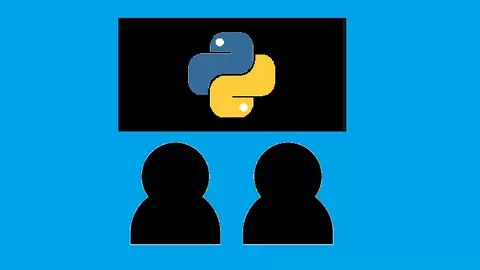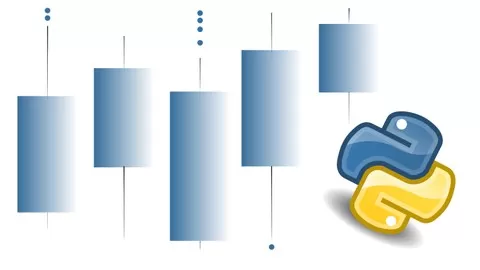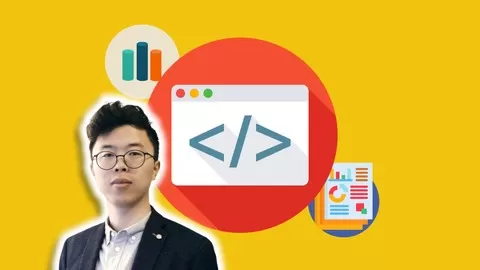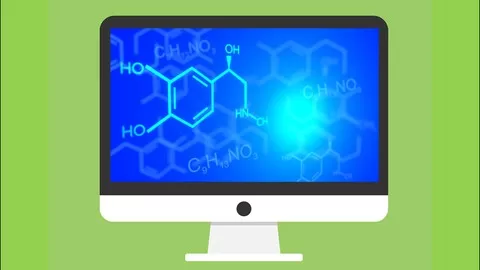This course has been designed and prepared for CBSE 11th students based on CBSE 2020-21 revised syllabus for Computational Thinking and Programming – 1(Unit-2) of Computer Science (Code no.083).
This course has been divided into three sections.
Section – 1 Computational Thinking
Section – 2 Python Programming
Section – 3 Suggested Python Programming Practicals
In Section-1, I have included 5 chapters related to computation thinking in which I explained how to solve the programming problem, what tools, techniques should use to solve the complex programming problem.All topics based on CBSE 2020-21 revised syllabus for Computational Thinking and Programming – 1(Unit-2)
In Section -2, I have explained theory and shown hands on Python Programming from basic concepts to complex. Following topics covered in the section which is based on CBSE 2020-21 revised syllabus for Computational Thinking and Programming – 1(Unit-2)
•Familiarization with the basics of Python programming: a simple “hello world” program, the process of writing a program (Interactive & Script mode), running it and print statements; simple data-types: integer, float and string.
•Features of Python, Python Character Set, Token & Identifiers, Keywords, Literals, Delimiters, Operators.
•Comments: (Single line & Multiline/ Continuation statements), Clarity & Simplification of expression
•Introduce the notion of a variable and methods to manipulate it (concept of L-value and R-value even if not taught explicitly).
•Knowledge of data types and operators: accepting input from the console, assignment statement, expressions, operators and their precedence.
•Operators & types: Binary operators-Arithmetic, Relational Operators, Logical Operators, Augmented Assignment Operators.
•Execution of a program, errors- syntax error, run-time error and logical error.
•Conditional statements: if, if-else, if-elif-else; simple programs: e.g.: absolute value, sort 3 numbers and divisibility of a number.
•Notion of iterative computation and control flow: for(range(),len()), while, using flowcharts, suggested programs: calculation of simple and compound interests, finding the factorial of a positive number etc.
•Strings: Traversal, operations – concatenation, repetition, membership; functions/methods–len(), capitalize(), title(), upper(), lower(), count(), find(), index(), isalnum(), islower(), isupper(), isspace(), isalpha(), isdigit(), split(),
•partition(), strip(), lstrip(), rstrip(), replace(); String slicing.
•Lists: Definition, Creation of a list, Traversal of a list. Operations on a list – concatenation, repetition, membership; functions/methods–len(), list(),append(), extend(), insert(), count(), index(), remove(), pop(), reverse(), sort(),
•min(), max(), sum(); Lists Slicing; Nested lists; finding the maximum, minimum, mean of numeric values stored in a list; linear search on list of numbers and counting the frequency of elements in a list.
•Tuples: Definition, Creation of a Tuple, Traversal of a tuple. Operations on a tuple – concatenation, repetition, membership; functions/methods – len(), tuple(), count(), index(), sorted(), min(), max(), sum(); Nested tuple;
•Tuple slicing; finding the minimum, maximum, mean of values stored in a tuple; linear search on a tuple of numbers, counting the frequency of elements in a tuple.
•Dictionary: Definition, Creation, Accessing elements of a dictionary, add an item, modify an item in a dictionary; Traversal,functions/methods – len(),dict(), keys(), values(), items(), get(), update(), del(), del, clear(), fromkeys(), copy(), pop(), popitem(), setdefault(), max(), min(), count(),sorted() copy(); Suggested programs : count the number of times a character appears in a given string using a dictionary, create a dictionary with names of employees, their salary and access them.
•Introduction to Python modules: Importing math module (pi, e, sqrt, ceil,floor, pow, fabs, sin, cos, tan); random module (random, randint,randrange), statistics module (mean, median, mode).
Section 3, based on Suggested Python Programming Practicals in which 18 different Python programs have been shown with in depth explanation.
Who this course is for:
•CBSE 11th students
•Beginners who have never programmed before.
•Programmers switching languages to Python.
•Intermediate Python programmers who want to level up their skills!
Notes :- This course is intended for purchase by adults like parents or guardian.





